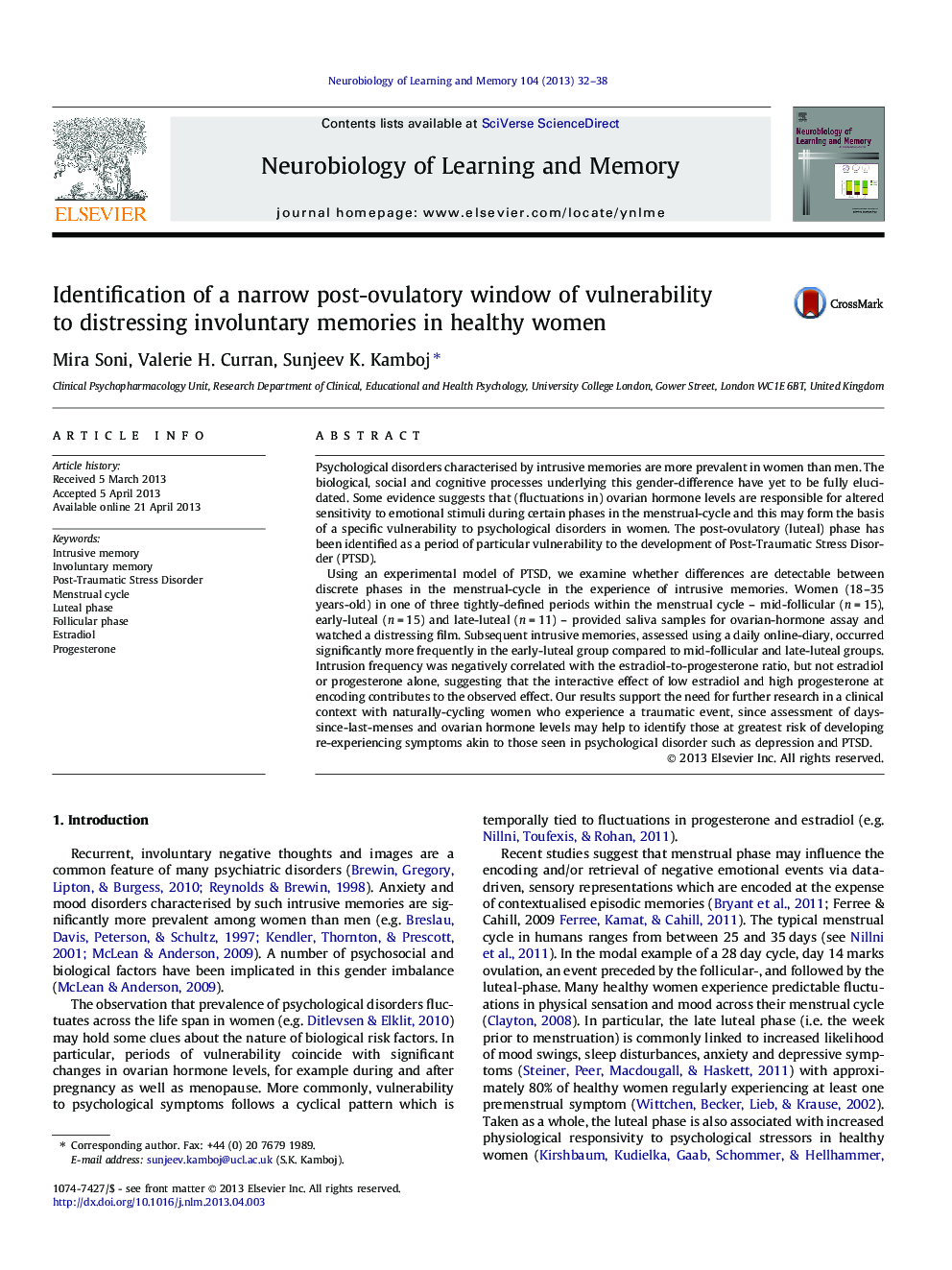| Article ID | Journal | Published Year | Pages | File Type |
|---|---|---|---|---|
| 7300472 | Neurobiology of Learning and Memory | 2013 | 7 Pages |
Abstract
Using an experimental model of PTSD, we examine whether differences are detectable between discrete phases in the menstrual-cycle in the experience of intrusive memories. Women (18-35 years-old) in one of three tightly-defined periods within the menstrual cycle - mid-follicular (n = 15), early-luteal (n = 15) and late-luteal (n = 11) - provided saliva samples for ovarian-hormone assay and watched a distressing film. Subsequent intrusive memories, assessed using a daily online-diary, occurred significantly more frequently in the early-luteal group compared to mid-follicular and late-luteal groups. Intrusion frequency was negatively correlated with the estradiol-to-progesterone ratio, but not estradiol or progesterone alone, suggesting that the interactive effect of low estradiol and high progesterone at encoding contributes to the observed effect. Our results support the need for further research in a clinical context with naturally-cycling women who experience a traumatic event, since assessment of days-since-last-menses and ovarian hormone levels may help to identify those at greatest risk of developing re-experiencing symptoms akin to those seen in psychological disorder such as depression and PTSD.
Keywords
Related Topics
Life Sciences
Neuroscience
Behavioral Neuroscience
Authors
Mira Soni, Valerie H. Curran, Sunjeev K. Kamboj,
